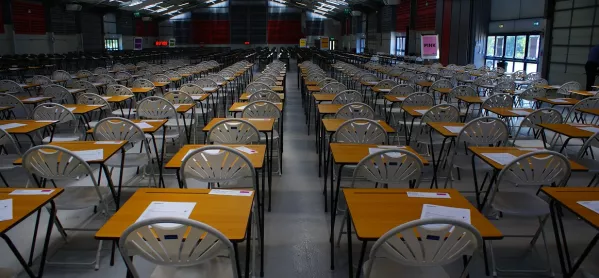There is a wealth of benefits to be gained from marking GCSEs. The process can make you more confident in teaching the specification and help you to focus your planning for the coming year.
But can it make you better at predicting what grades your students might receive come results day? Not really.
There are lots of reasons why marking won’t help you predict results. For starters, you’re battling the “nonsense cloud”. Your weather app might be predicting clear skies, but there is a non-meteorological phenomenon that takes place when a student walks into an exam - the cloud of utter nonsense.
The cloud descends at some point between your student being instructed by you on how to answer the questions successfully, and the point at which they sit down in the exam hall and pick up their pen.
Some students dodge this cloud, and actually manage to follow the advice you patiently repeated for five years of their schooling. Some students get drenched.
From answering every question in an optional choice paper to forgetting to write down their workings in a maths paper, students make mistakes in exams. Adrenaline, pressure, lack of preparation, over preparation - who knows what causes it. When papers are recalled, they are often a shock to the teachers. “Why did they write this?” they ask. The answer: the nonsense cloud.
‘False sense of security’
All we have to go on when predicting results is classroom performance. Marking exams can lull you into a false sense of security. You tell yourself “MY students write far better than this! I taught them this poem the day before the exam! They will remember the contextual points.”
But you cannot rely on them to perform under pressure. For many students, GCSEs are their first experience of a real, meaningful, externally-marked exam. Predict what you want - you never really know how a student will fair in an exam situation until you put them in that chair.
Grade boundary fluctuations exist due to the science of judging how difficult a paper was in relation to a previous year, and then adjusting the grade boundaries accordingly. You might be clapping your hands in joy for the “easy” paper in June, but come August when you’re calculating your percentages you could be shaking your fist at the heavens.
Predicting results is at best guesswork, and rarely worthwhile. You’re better off just focusing on where their gaps in understanding are - and forgetting about the numbers.
Grainne Hallahan has been teaching English in Essex for 10 years. She is part of the #TeamEnglish Twitter group




